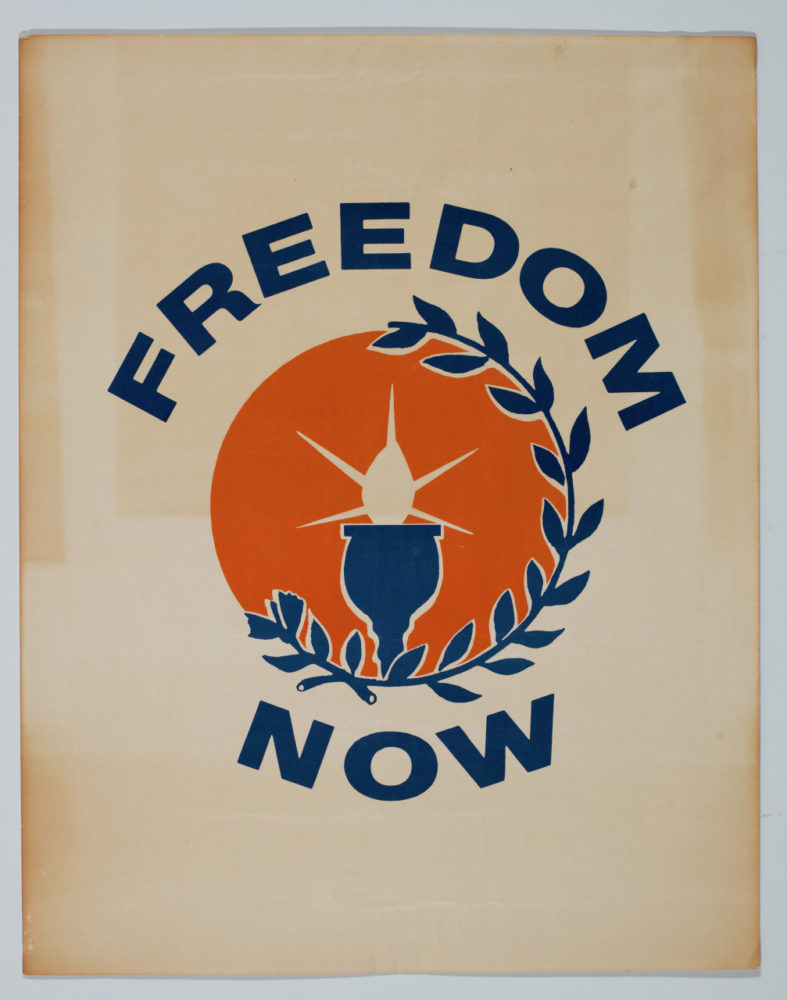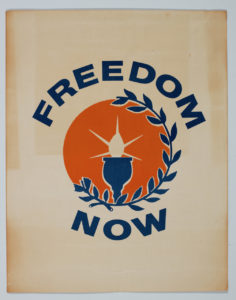NOLA Resistance
Voices from the Civil Rights Movement
Published: March 1, 2020
Last Updated: June 1, 2020

The Historic New Orleans Collection
A poster issued by CORE, ca. 1960.
“We, in 1963, we had a vision on the right to vote, and desegregation. What is your vision?”
—Ronnie Moore, interviewed for NOLA Resistance Oral History Project, September 27, 2017
In late 2019, The Historic New Orleans Collection (THNOC) released the NOLA Resistance Oral History Project—the culmination of a two-year effort to record testimony from individuals active in the fight for racial equality in New Orleans between 1954 and 1976. The completed project, which was funded in part by a National Park Service grant, comprises nearly fifty hours of recordings of thirty interviewees from a cross section of the diverse civil rights movement—including members of the Congress of Racial Equality (CORE), the NAACP, and the Black Panthers; artists; writers; and former students and family members who were on the front lines of public school integration. The interviews, conducted by THNOC oral historian Mark Cave, cover a wide range of themes, from efforts to end segregation in businesses, schools, government facilities, and public transportation to voter registration drives and conflicts with local government and the police force.A cornerstone of the project was making the contents of the oral histories easily accessible for researchers, students, and the general public. The full audio and a searchable transcript for each interview are available at hnoc.org/nolaresistance. An additional set of ten thematic videos—each approximately three to four minutes in length—is also available. The videos feature project participants—including Leona Tate, Dodie Smith-Simmons, Don Hubbard, Katrena Ndang, Dr. Raphael Cassimere Jr., and Malik Rahim—speaking to the larger stories that knit their experiences together. The result is a powerful recounting of pivotal moments and events from the local civil rights movement.
Another critical component of the project is curricula for middle and high school students. THNOC’s education department developed three lesson plans from the oral histories: “Stories of Resistance,” “Young Leaders of New Orleans,” and “Integrating McDonogh 19.” According to Curator of Education Jenny Schwartzberg, each lesson “prompts students to engage with primary and secondary historical sources to examine the experiences of local civil rights leaders. The lessons, also available online, help students cultivate critical–thinking skills, further develop their reading comprehension abilities, and gain experience in assessing different types of historical sources.”
Together, the testimonies from NOLA Resistance trace the history of the struggle for racial justice in New Orleans and place the city within the national framework of the civil rights era. The project preserves this history for current and future scholars, students, and the public at large.
